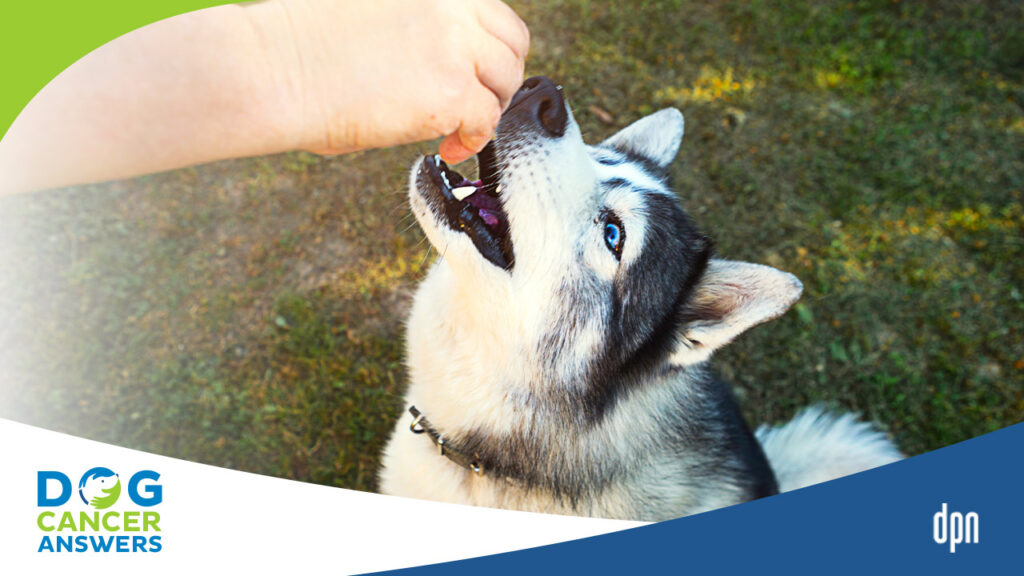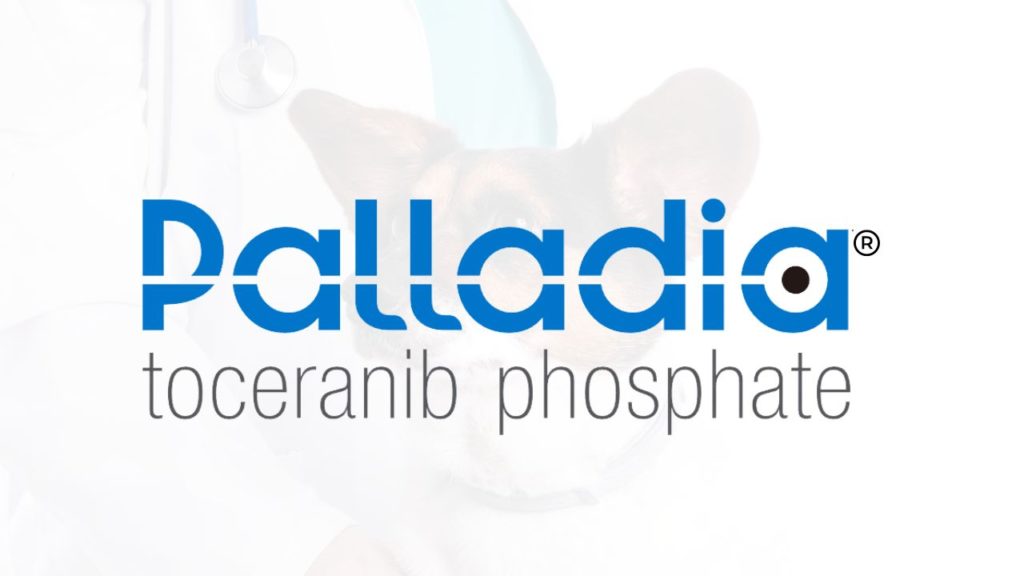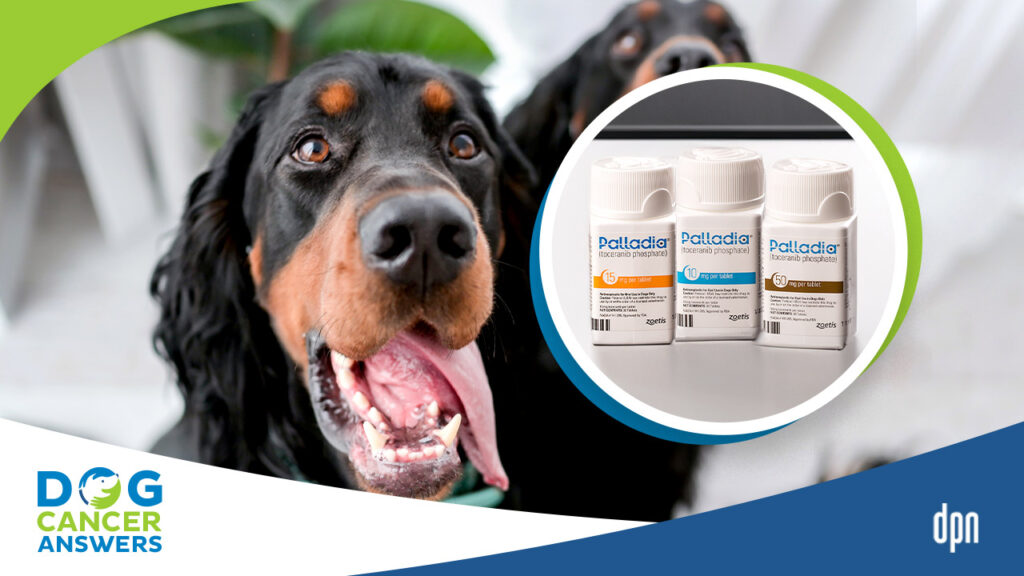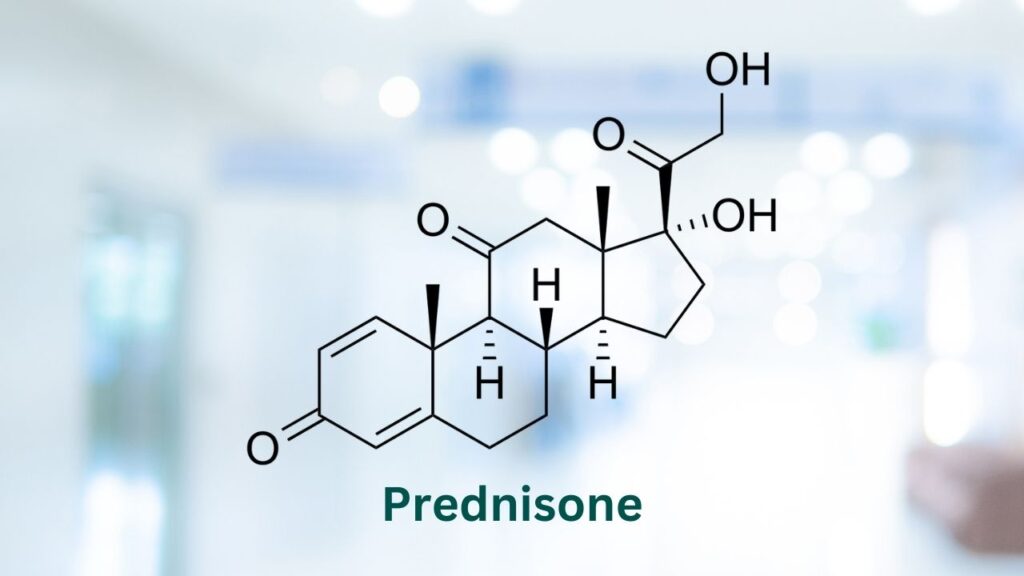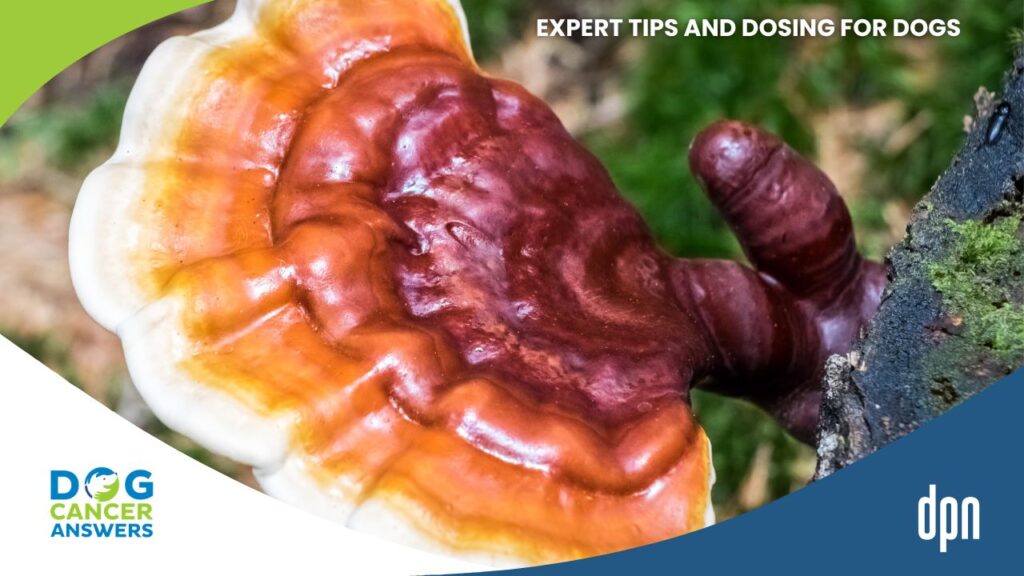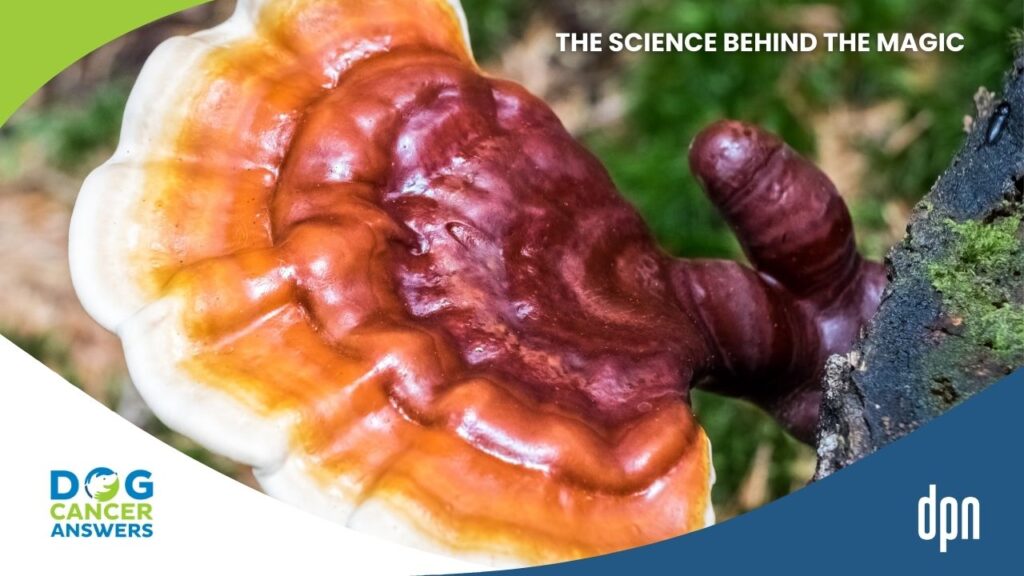EPISODE 154 | RELEASED February 14, 2022
What Natural Cancer Treatment for Dogs Can I Use? | Dr. Nancy Reese Q&A
Listener Bonnie calls in to see if there are natural alternatives for her dog Bam Bam’s cancer medications.
SHOW NOTES
Dog lovers frequently wonder if there is a more natural option that could be used instead of pharmaceuticals to treat their dogs. The answer is… sometimes!
Bam Bam has elevated calcium levels in his blood, and his human wants to know if she can swap out some of his medications. Dr. Nancy Reese breaks down how the medications prednisone, Lasix, and Palladia work and why they might have been chosen to be part of the treatment plan, as well as some natural options that might work to help out a bit.
Although a pharmaceutical may be just what your pet needs for the best results, there are often natural remedies that can help to support conventional treatments.
[00:00:00] >> Dr. Nancy Reese: Dandelion is a natural diuretic but several diuretics work in slightly different mechanisms. So some diuretics will make you urinate more potassium, other ones don’t, and potassium levels can also affect calcium levels. So dandelion, while it might be a good diuretic, might not be as effective to lower calcium.
[00:00:21] >> Announcer: Welcome to Dog Cancer Answers where we help you help your dog with cancer. Here’s your host, James Jacobson.
[00:00:29] >> James Jacobson: Hello friend. Have you ever been curious? Curious about whether there are natural alternatives to the dogs’ medications that your veterinarian prescribed. Interesting, huh? Well, today we are taking a call about that very subject.
It came in on our Listener Line. And to answer the caller’s question, we are joined once again by Dr. Nancy Reese, our chief medical editor here at Dog Cancer Answers. Dr. Nancy has, well she has been in veterinary medicine for a while, well over 30 years she’s been practicing. In addition to practicing, she has advanced degrees.
She holds a Master’s degree in Preventative Veterinary Medicine and a PhD in Epidemiology. Once again, thank you Dr. Nancy for being with us.
[00:01:23] >> Dr. Nancy Reese: Hello. My pleasure. Wish we didn’t have to have these discussions, but always glad to talk to you.
[00:01:28] >> James Jacobson: As we say, this is one of those shows that I’m sorry you have to listen to, but we’re going to make it as useful and as informative as possible.
And today we are taking a call from Bonnie who’s in Connecticut, and she has a dog named Bam-Bam. Let’s listen.
[00:01:43] >> Bonnie: Hi. I’m Bonnie. Calling about Bam-Bam in Connecticut. My question is, is there an alternative, a natural alternative to the prednisone and Lasix, um, via the coverage for high calcium? I’m thinking about maybe dandelion for the diuretic.
But as far as the prednisone, is there something more natural to keep the calcium levels down or balanced. And then the other question is, is there something more natural, referring to the Palladia, or the side effects for chemo? And what do you think about IV [vitamin] C and K3? Thank you.
[00:02:36] >> James Jacobson: So Bonnie wants natural stuff for Bam-Bam. What are your thoughts, Dr. Nancy?
[00:02:44] >> Dr. Nancy Reese: So I’m assuming that the high calcium is secondary to a type of cancer, ’cause that might affect the type of treatment that’s done. There are other noncancerous causes of high calcium. So I’d certainly want to make sure that those were ruled out because the treatment for that might be different.
So a few things like excessive vitamin D could cause a high calcium. And there was, several years ago, there was quite a bit of food recalls due to excessive vitamin D. So some of those animals could have had high calcium levels, uh, from that. So the more common cancer associated with high calcium, uh, we see that frequently with lymphoma or with, um, anal gland tumors.
Um, both of those are sort of notorious for causing high calcium. One of the other causes of high calcium could be parathyroid gland, which is a little gland next to the thyroid gland. So that would be a totally different treatment than treating for cancer, but also something called Addison’s Disease can occasionally cause a high calcium.
So the big thing is make sure you know what’s causing the high calcium, because if you treat the underlying condition, the calcium might regulate itself without having to do the pred and the Lasix.
[00:03:59] >> James Jacobson: Got it. So without knowing why they’re having these issues, it’s kind of hard to suggest a natural alternative.
[00:04:06] >> Dr. Nancy Reese: Right, right. The pred and Lasix might be something that, Hey, we’re not doing chemotherapy, we just want to make the animal feel more comfortable. And that, that calcium, the high calcium can certainly cause some symptoms that are troublesome. They can drink a lot of water. They can pee a lot – which is actually kind of funny because pred and Lasix will cause that too, so you’re sort of treating the symptoms of the high calcium with drugs that cause the same symptoms. But, uh, the high calcium can also cause, um, muscle weakness and, and just feeling lousy, being really lethargic and maybe some muscle tremors and things. But the, the pred and the Lasix – so the Lasix is a diuretic, which makes you pee more.
So it takes fluid out of the body, and helps to send calcium out the urine. And that’s the way that it lowers calcium levels. Dandelion is a natural diuretic, but several diuretics work in slightly different mechanisms. So some diuretics will make you urinate more potassium, other ones don’t, and potassium levels can also affect calcium levels.
So dandelion, while it might be a good diuretic, might not be as effective to lower calcium as Lasix is. Dandelion is pretty high in potassium and calcium. So that actually might be a little bit of an issue that you would be adding calcium and then trying to diuretic, to try to get it to pee out more. So I, I’m not a hundred percent sure that the dandelion would be an effective treatment for that.
That being said, if the animal was on the Lasix and the pred for a while and the calcium levels came down and they wanted to continue a diuretic, you could possibly try the dandelion and then, because you can easily measure the calcium levels so they can actually see the effects of whether it was working as well.
But initially I think the Lasix and the pred is probably a more potent combination to try to lower that calcium.
[00:05:58] >> James Jacobson: Let’s take a break. And when we come back, I want to have a little conversation about how she should speak with her veterinarian about wanting to do some of these more, you know, alternative, natural things. We’ll be right back.
We’re back with Dr. Nancy Reese. So Bonnie wants to do some more natural things. Uh, Doctor, what do you think in terms of if, if the veterinarian said – and we’ll get into Palladia, ’cause she talks, asked about, specifically about Palladia – but if the doctor says, you know, let’s go this way and it’s a pharma, and you want to go natural, what do you say to the vet? How does that conversation go?
[00:06:37] >> Dr. Nancy Reese: It’s certainly good to have that conversation because what I find some people do is they decide to discontinue what the veterinarian had prescribed and do something on their own and then come back later. And so whatever you decide is you definitely want to let the veterinarian in on the loop of what you’re using to treat, because it makes a big difference.
I’m personally very open to my clients doing things as long as they talk to me about it so we can document what we’re doing and then have a plan for how we’re going to deal with it if it doesn’t work or, or that type of thing. So, first thing is to say, you know, I’m uncomfortable with the traditional medications and I want to use the natural ones.
And I would also say enlist the support of a holistic or naturopath veterinarian so that that person, you know that it’s being dosed appropriately and things like that. A lot of veterinarians are open to alternatives, so the veterinarian they’re with might already have some experience with that and be able to say, I will go for that, or I wouldn’t recommend it.
So you definitely want to have that good conversation so that, you know, everybody’s on the, on the same plane. I wouldn’t want to be using something like the dandelion and the Lasix at the same time.
[00:07:47] >> James Jacobson: Right.
[00:07:47] >> Dr. Nancy Reese: Because you might be giving too much of a diuretic effect.
[00:07:50] >> James Jacobson: Right, because they both do the same thing. And so you’re basically doubling up on it. And just because it’s natural doesn’t mean it’s, doesn’t do anything, in the case of the dandelion.
[00:07:59] >> Dr. Nancy Reese: Right. Right. Absolutely.
[00:08:01] >> James Jacobson: Well, let’s talk about Palladia and her other questions.
[00:08:04] >> Dr. Nancy Reese: So I would have to say, yeah, it would better if we knew what type of cancer, presumably again, we’re, if we’re talking about Palladia it’s some type of cancer, I don’t know why you’d use it otherwise, but I don’t think there’s really any strong enough alternative to that.
There’s certainly some herbs that are going to have some little effect on, you know, a similar mechanism, but nothing that would have the strength of the Palladia. So if it was something like you were dealing with an aggressive mast cell tumor where Palladia has its sort of biggest role, I don’t think there would be anything completely natural that you could do that would take the place of Palladia.
You might have some beneficial effects from some alternative treatments, but Palladia is, is a pretty specific potent medication that I don’t think there would be a great natural alternative. A lot of other things for support, but not as a primary treatment. Palladia is also used as a metronomic or low dose continuous therapy for some other cancers and things.
And in those cases, then again, I’d say something that would help support the body and try to reduce side effects would be a better thing than trying to find a complete replacement for Palladia.
[00:09:16] >> James Jacobson: Any other thoughts for Bonnie and Bam-Bam?
[00:09:19] >> Dr. Nancy Reese: I think she had asked about vitamin K and, and IV vitamin C and I think we might’ve done, a while ago, a little something on, on IV vitamin C and so.
[00:09:27] >> James Jacobson: We have. And we’ll put a link in the show notes to that episode.
[00:09:30] >> Dr. Nancy Reese: Okay. Yeah. So I think vitamin C has some indication for some, some cancer things. However, if her question is specifically related to the dog and the high calcium level, vitamin C would probably be an issue because of the combination of vitamin C can actually increase calcium levels, and both of those can contribute to kidney stones. So I would be very hesitant to use vitamin C with high calcium. K3 is a synthetic form, K1 and K2 are sort of more natural forms. And I actually have used K2 to try to reduce calcium in a cat, um, which they can get high calcium levels for some unknown reason, unrelated to cancers.
So the vitamin K3 does have some anti-calcium effects. It’s converted to vitamin K2, which then helps lower calcium levels. So that might be something to talk to your vet about as well, because it may be something that could be an adjunct type of treatment to help lower calcium.
[00:10:30] >> James Jacobson: Why, uh, synthetic versus, why K3 synthetic versus K2, a natural?
[00:10:35] >> Dr. Nancy Reese: I think it’s just yeah, the availability to get it. I think that uh vitamin K3 is converted to K2. So, um, and I can’t remember whether uh, vitamin K.
[00:10:43] >> James Jacobson: It’s a precursor.
[00:10:44] >> Dr. Nancy Reese: Yeah. Whether it comes in a injectable form or what, but, um, but there are, yeah, some options for that. And there wouldn’t be a whole lot of contraindications for that. But again, if you’re doing other treatments as well, you want to make sure there’s not going to be an interaction.
[00:11:01] >> James Jacobson: Well, Dr. Nancy, thank you so much for being with us. I hope this is helpful to Bonnie and again, Bam-Bam. Great name. Thanks for being with us today.
[00:11:08] >> Dr. Nancy Reese: Yeah. I’ve got my cats named Pebbles and Bam-Bam.
[00:11:12] >> James Jacobson: You do? I didn’t know that.
[00:11:13] >> Dr. Nancy Reese: Yes. I was looking to see if one of them was behind me, but that’s a different cat.
[00:11:17] >> James Jacobson: Ah, okay. So you are particularly connected to the Bam-Bam, but this is, this is the Flintstones.
[00:11:22] >> Dr. Nancy Reese: That’s right. So I like Bam-Bam.
[00:11:23] >> James Jacobson: That is awesome. Dr. Nancy, thanks for being with us today.
And I want to thank you listener. Thanks for joining us. So while Bam-Bam probably should stick with the Palladia if his mom and the veterinarian decide that is the best treatment for his situation, dandelion and vitamin K3 might be a good fit for him either now or in the future.
If you are like Bonnie and are curious about natural alternatives to your dog’s medications, well, please seek out an experienced holistic or integrative veterinarian, but don’t forget to keep your regular vet in the loop. Having the whole team on the same page will help to make sure that your pup is getting the absolute best care and that all of his medications and supplements are working together to keep him healthy.
You can find the links and resources mentioned in today’s show in the show notes for our episode and also on our website at DogCancerAnswers.com. I also want to encourage you to check out our newsletter and you can sign up for that by going to DogCancerNews.com. The newsletter comes out three times a week.
It is an amazing resource and it is free. Just get that at DogCancerNews.com. And if you have a question for our Dog Cancer Answers team, well, you can call us just like Bonnie did. Give us a call on our Listener Line. And that phone number is (808) 868-3200. It is open 24 hours a day, seven days a week, so you can leave a message and perhaps it’ll be made into a future episode of Dog Cancer Answers.
Well, that is all for today. I am James Jacobson. From all of us here at Dog Podcast Network, thank you for listening. And I would like to wish you and your dog, a very warm, Aloha.
[00:13:27] >> Announcer: Thank you for listening to Dog Cancer Answers. If you’d like to connect, please visit our website at DogCancerAnswers.com or call our Listener Line at (808) 868-3200. And here’s a friendly reminder that you probably already know: this podcast is provided for informational and educational purposes only.
It’s not meant to take the place of the advice you receive from your dog’s veterinarian. Only veterinarians who examine your dog can give you veterinary advice or diagnose your dog’s medical condition. Your reliance on the information you hear on this podcast is solely at your own risk. If your dog has a specific health problem, contact your veterinarian.
Also, please keep in mind that veterinary information can change rapidly, therefore, some information may be out of date. Dog Cancer Answers is a presentation of Maui Media in association with Dog Podcast Network.


